Last updated on December 1st, 2021
Sweden is a country located in northern Europe that is part of the Scandinavian group of countries which includes Norway and Finland, with which it shares a border, and Denmark to which it is connected via a bridge and tunnel. The country covers an area of approximately 450,000 square kilometres and, with a population of just over 10 million, is the fifth largest country in Europe. The capital of the Kingdom of Sweden (as the country is officially known), is Stockholm and is a parliamentary democracy that also features a constitutional monarchy as part of its ruling structure. Sweden is notable for many reasons; following are 50 interesting facts about Sweden.
1. Stockholm has been the Swedish capital since 1523 and is spread across 14 islands. It is the country’s largest and most populated city.
2. Sweden has one of the lowest population densities in the world, of only 25.5 people per square kilometre, with the majority (over 80%) living in urban areas that represent only 1.5% of the land area.
3. Over 65% of the country is covered by forests (an area of approximately 280,000 square kilometres) half of which is owned by private landholders, 25% by private companies and the rest by the state, through a company called Sveaskog AB, which is the largest single landholder in the country.
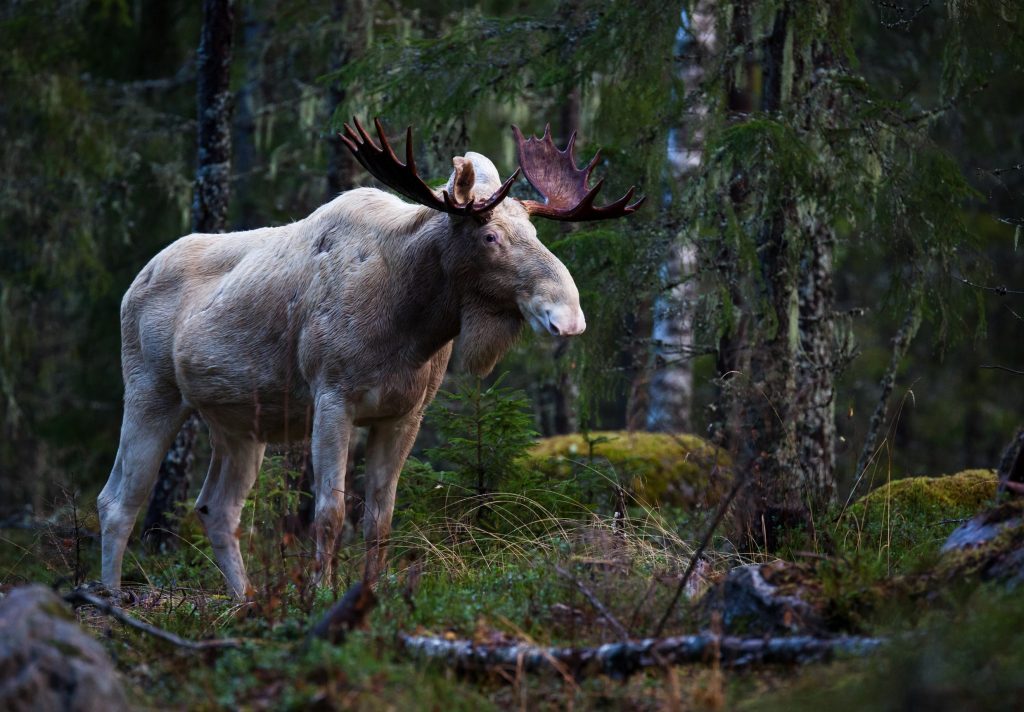
4. Sweden has a large moose population and it is generally thought that they roam freely through its woods, which is incorrect. With a population estimated to be between 300,000 and 400,000 strong, if they all gathered in one place they would form a group one of the largest cities in the country.
5. Sweden has an unusual right for its people that is called ‘the freedom to roam’. It means that people have the right to access all public and private land that is not cultivated (or that is a garden attached to a house) and can camp where they wish. It also confers the right to pick berries, flowers and mushrooms without a permit.
6. Sweden is clearly a nature-lover’s paradise and aside from land that is held privately and by the state, there are over 29 national parks that feature its vast boreal forests, glaciers and mountains. Abisko National Park is the most popular and is easy to reach and offers incredible vistas and wildlife.
7. As well as its forests, Sweden has over 90,000 lakes and 3000 kilometers of coastline. Swedes are keen to protect their natural environment and the country is one of the cleanest and most progressive in the world when it comes to recycling and other environmental concerns.
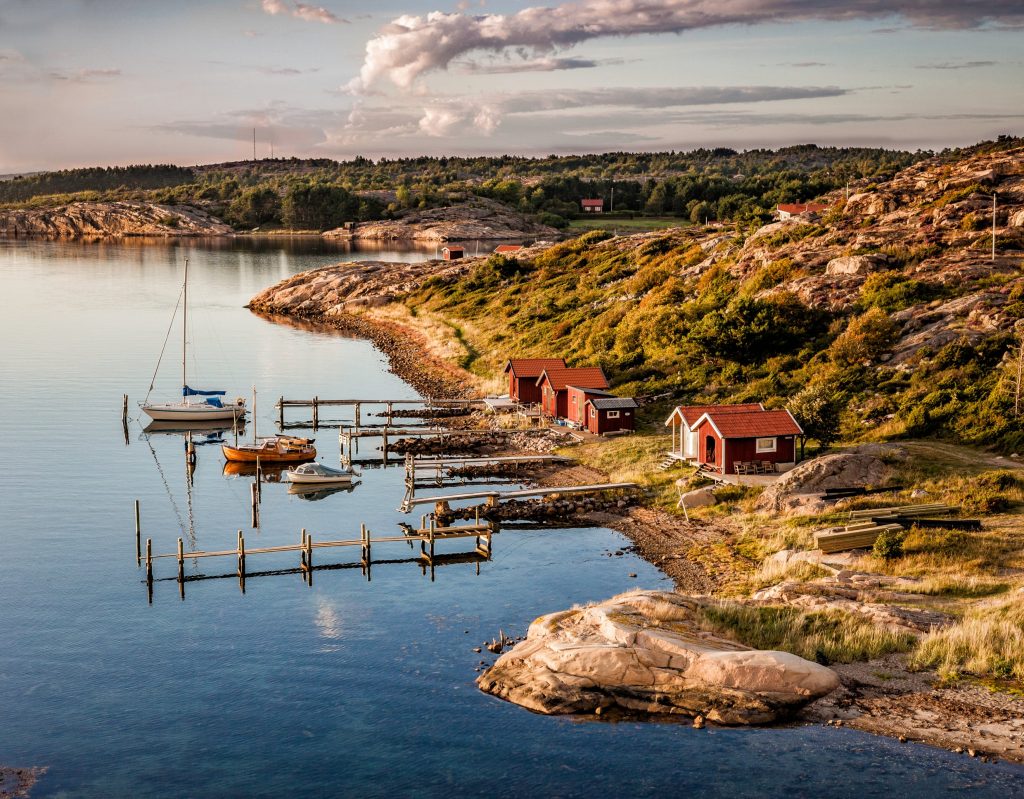
8. Sweden is so good at recycling their waste (with only 1% used as landfill, 50% recycled and the remainder burnt to generate energy) that they actually import waste from other countries (mainly Norway and the UK) which pay for the privilege. Interestingly, a recycling station can be found within at most 300 meters from any residential area.
9. Sweden is famous for many inventions, most notably, perhaps, for dynamite which was invented by Alfred Nobel in 1867. He was a chemist, engineer and businessman who held over 355 different patents during his lifetime.
10. After reading an obituary that was intended to be read after his death which criticized the huge profits he made from selling arms he decided to bequeath his fortune to the Nobel Prize Institute which would recognize outstanding achievements in the arts and sciences.
11. Among Sweden’s more well-known inventions is the centigrade system for measuring temperature (units of degrees Celsius) which was created by Anders Celsius, a noted Swedish astronomer.
12. Sweden is also notable as the country with the oldest limited company in the world (Koppargravura AB founded in 1288) and that holds the highest number of patents in the world.
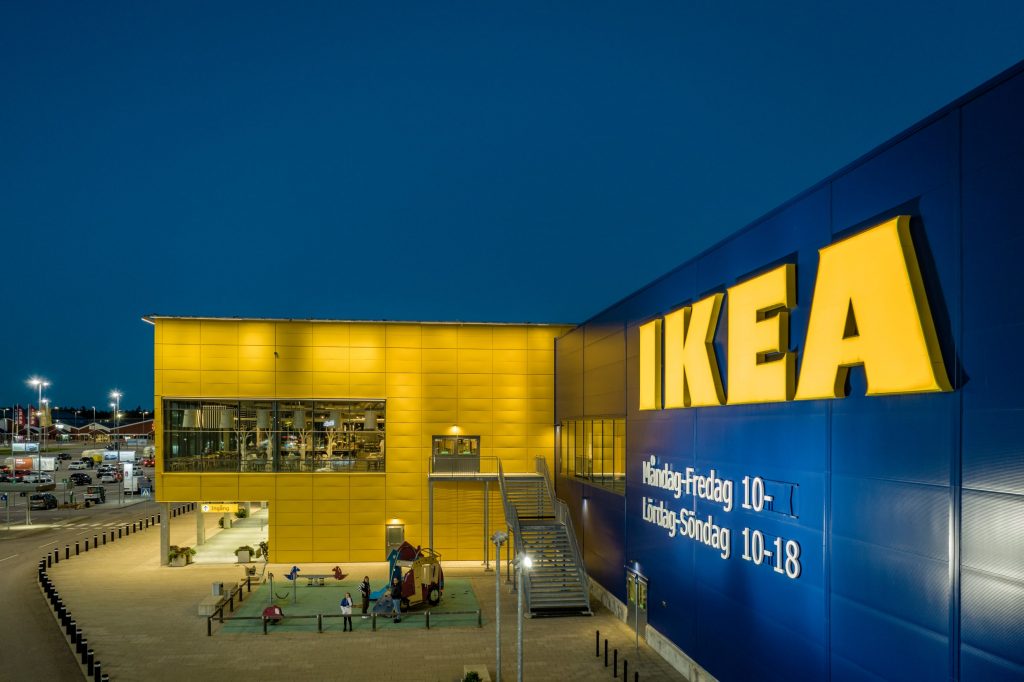
13. Some notable brands that originate from Sweden include Saab, Electrolux, IKEA, Ericsson, Volvo among many others. It is responsible for the Tetra Pak, ball bearings and the heart pacemaker among many others.
14. While the Swedish engineering industry is still a major source of business for the country, pharmaceuticals, electronics and other high-tech industries are becoming more significant and the Swedish economy remains based on the export of its inventions and the ingenuity of Swedish inventors.
Swedish inventors and their inventions
| Serial | Inventor's Name | Invention(s) |
|---|---|---|
| 1. | Jonas Offrell | Developed a revolver at the same time and independently of Samuel Colt. |
| 2. | Martin Wiberg | Developed a machine the size of a sewing machine that could print logarithmic tables. |
| 3. | Alfred Nobel | Invented dynamite and instituted the Nobel Prizes. |
| 4. | Helge Palmcrantz | He patented the multi-barrel, lever-actuated, machine gun that later would be known as the Nordenfelt machine gun. |
| 5. | Willgodt Theophil Odhner | Invented the Odhner arithmometer, a mechanical calculator. |
| 6. | Lars Magnus Ericsson | Started the company bearing his name, Ericsson. |
| 7. | Jonas Wenström | Was an early pioneer in alternating current |
| 8. | Johan Petter Johansson | Built and patented the adjustable spanner/wrench in 1892. |
| 9. | Gustaf de Laval | Invented the milk-cream separator. |
| 10. | Carl Rickard Nyberg | Invented the blowtorch. |
15. One of the many countries which bought Swedish products over the years was North Korea who agreed to purchase 1000 Volvo vehicles in 1974. Unfortunately, they never paid for them and the Swedish government is still trying to collect on a debt that has now grown to 2.7 billion Swedish kroner (about $US 300 million).
16. The country features a hotel made entirely of ice that is constructed anew each winter when the temperatures are low enough that it doesn’t melt away. The Ice Hotel is located in the town of Jukkasjarvi and is constructed from blocks of ice as large as two tonnes that are cut from the local Torne river.
17. Each year the hotel is built to unique design and features the work of local artists. Interestingly, it is required by local ordinances to have a fire alarm system installed!
18. Nicotine gum, which is used as a replacement therapy for smokers wanting to give up the habit, was invented in Sweden. The first product of its type in the world was called Nicorette and was created by a company called Leo AB. Although they didn’t invent it, they included a polymer that controlled the release of nicotine to better help manage smokers’ withdrawal symptoms.
19. Sweden created the first pacemaker, that regulates the beating of patients’ hearts. This was done in 1958 by Senning and Elmqvist.
20. One of the more surprising aspects of Swedish inventiveness is their ability to create popular music that resonates around the world. Staring with mega-group ABBA in the 1970s, the country has since become the third largest exporter of music in the world, second only to the United States and Britain.
Sweden on map
21. To celebrate the success of its most famous musical export, Stockholm has an ABBA museum where visitors can try on the costumes members wore virtually as well as sing and play along with their music on a stage created for the purpose.
22. Sweden has produced many successful music producers since then and they remain some of the most influential people in popular music today producing hits for artists including The Cardigans, NSYNC, Justin Bieber, Zara Larsson, the Backstreet Boys and Britney Spears, among many, many others.
23. Sweden has among the highest Value Added Tax (VAT) rates in the world at 25%. This, however, is offset by its many social programs which include free health care and generous unemployment benefits.
24. The Swedish people are known for their kindness and generosity and there is evidence to prove it: Sweden is the only country in the world where private donations represent more than 1% of the country’s GDP.
25. Swedes are also known as a peaceful people. After the last war in which they were involved in 1814, Sweden has been at peace for over 200 years and maintains an official policy of neutrality in foreign affairs that is even older than Switzerland’s.
26. Sweden is a global pioneer in the field of astronomy and is home to the biggest scale model of the solar system. The sun is represented by the Ericsson Dome (the world’s largest hemispherical building) in Stockholm and the model’s outer limits are 950km away in the town of Kiruna which represents the edge of the solar system.
Flag of Sweden
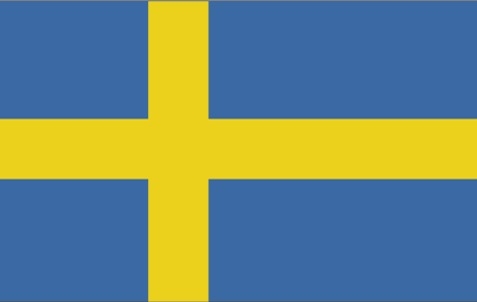
27. The scale of this model is 1:20 million and each object in the solar system is marked with a model or statue. Mercury is only 3km from the Ericsson Dome, Earth is 7.6km whilst Pluto is over 300km distant from it. It makes a fascinating tourist activity to visit all the planets.
28. The Swedish people (as well as people from Norway and Denmark) are descendants of the ferocious Vikings that set out in their tall ships and invaded most of northern and eastern Europe between the 8th and 11th centuries.
29. Although the Viking influence fell in the ensuing centuries, Sweden became one of the great powers of Europe once again in the 17th century gaining territories in Eastern Europe.
30. Sweden is the sixth oldest country in Europe and its eighth oldest monarchy as well as being one of the oldest sovereign states in the world. It has been in existence as a sovereign state for over 1,000 years after being founded by Eric the Victorious in 970 AD.
Eight oldest monarchies
| Serial | Name of Kingdom | Year founded | First Monarch |
|---|---|---|---|
| 1. | Imperial House of Japan | 660 BCE (according to legend, but cited as the official founding date) | Emperor Jimmu |
| 2. | Kingdom of Cambodia | 68 AD | Queen Soma |
| 3. | Sultanate of Oman | 751 AD as an Imamate; current Sultanate was established in 1749 | Al-Julanda bin Mas’ood (first Imam); Ahmad bin Said al-Busaidi (first Sultan) |
| 4. | Kingdom of Morocco | 788 AD | Idriss I (Idris ibn Abdallah) |
| 5. | British Monarchy | 871 AD or 1066 AD | Alfred the Great or William the Conqueror |
| 6. | Kingdom of Norway | c.885 AD | Harald Fairhair |
| 7. | Kingdom of Denmark | c.935 AD | Gorm the Old |
| 8. | Kingdom of Sweden | c.970 AD | Eric the Victorious |
31. Although its monarchical systems and traditions remain intact, Sweden instituted a parliamentary democracy as its ruling political structure in 1917 and is one of the oldest parliamentary democracies in the world.
32. Sweden has a long history of ordinary groups of people becoming involved politically through so-called ‘folk movements’ which arose from trade unions, Christian religious groups, womens’ movements and temperance movements, among others.
33. Among its many progressive political achievements, Sweden is famous for being the first country in the world to outlaw physical punishment of children. In 1966 the right of parents to hit their children was removed and they passed a law that explicitly banned it in 1979.
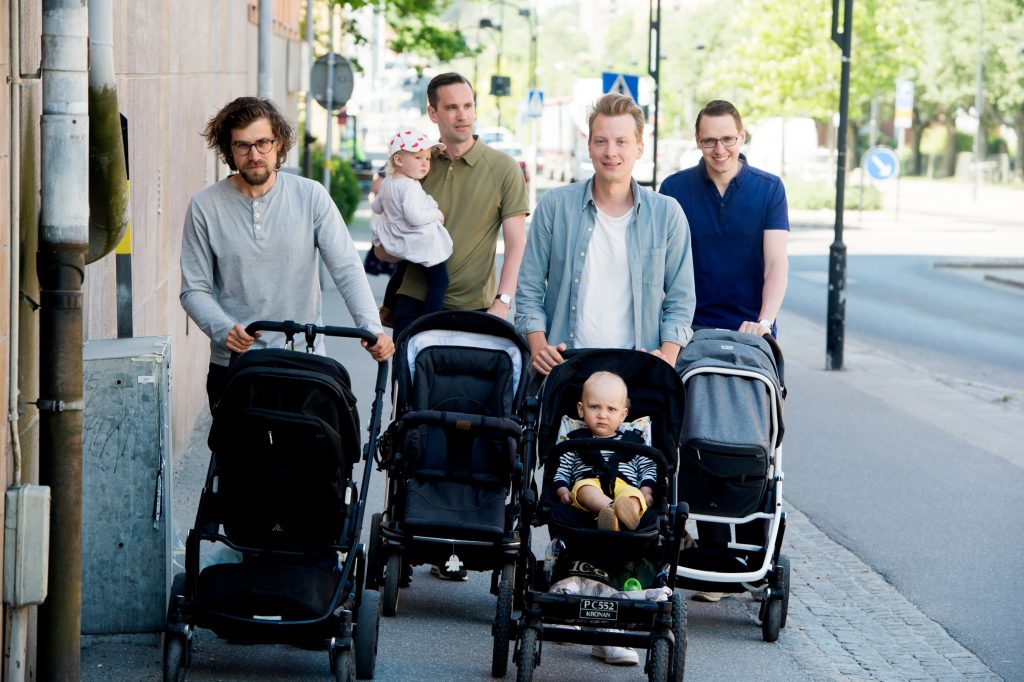
34. Sweden also offers some of the most generous paternity leave in the world with fathers also given the opportunity to spend time with their child. In all Sweden offers up to 480 days of paternity leave at 80% of wages. There are also bonus days if parents have twins!
35. Today Sweden has one of the highest living standards in the world mainly due to maintaining low unemployment, a strong welfare system and one of the highest life-expectancies in the world.
36. When Sweden’s population doubled in the century between 1750 and 1850, many Swedes emigrated (with an estimated 1 million going to America) to forestall famine and hunger in the country; it is estimated that approximately 1% of the population emigrated annually during the 1880s.
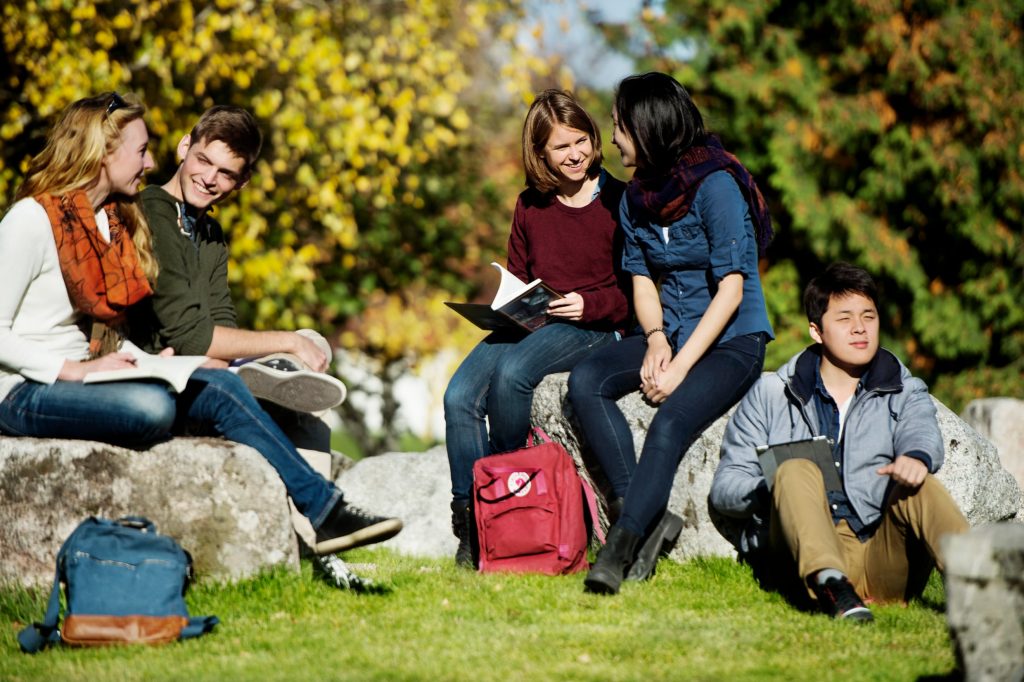
37. Sweden also leads in studies that measure gender equality in education, employment and political representation; in 2006 the EU ranked the country first in its report on gender equality.
38. Swedes are well known for their love of meatballs and the dish is highly popular in the country, usually served with gravy and boiled potatoes, so much so that the IKEA furniture store (another Swedish icon) serves them in its stores around the world.
39. Another Swedish culinary tradition that is celebrated in the summer of August is the ‘kraftskiva’ festival which involves eating boiled crayfish served with boiled potatoes and dill washed down with plenty of schnapps.
40. Although Swedish people pride themselves on leading a healthy, outdoor lifestyle that includes eating well, the country holds the record for one of the highest number of McDonalds restaurants per-capita in the world.
41. The Swedish people often use public transport including an underground metro system in the capital Stockholm. While other cities also have metro systems, Stockholm’s features art created by over 150 artists (including paintings, mosaics, installations and sculptures) and has been called the world’s largest art exhibit with works featured at stations along its 110 kilometre length.
42. Becoming a Swedish citizen confers the right to carry a Swedish passport which gives a bearer entry to more than 124 countries in the world without the need to apply for a visa and is ranked as the sixth best passport to have in the world.
List of the best passports in the world
| Rank | Country | Access to countries |
|---|---|---|
| 1. | Japan | 193 |
| 2. | Singapore | 192 |
| 3. | South Korea | 191 |
| 4. | Germany | 191 |
| 5. | Italy | 190 |
| 6. | Finland | 190 |
| 7. | Spain | 190 |
| 8. | Luxembourg | 190 |
| 9. | Denmark | 189 |
| 10. | Austria | 189 |
| 11. | Sweden | 188 |
| 12. | France | 188 |
| 13. | Portugal | 188 |
| 14. | Netherlands | 188 |
| 15. | Ireland | 188 |
| Data source | Henley and Partners |
43. Sweden was the first country to have a phone number associated with it. The idea was that people could call the number and talk to a Swedish person and get an idea about what Swedish life was like. The service has been discontinued.
44. Swedish people are known for their honesty and directness and visitors are advised to take note. They are a non-judgmental people but they don’t like beating about the bush. Swedes also prioritize and respect each other’s privacy.

45. A core part of Swedish culture is the ‘fika’. Essentially this is simply going out and having a coffee. In Sweden, however, this ritual also includes having an open and meaningful conversation at the same time which can involve dealing with profound issues.
46. Sweden is a highly secular country. Historically, the Swedish state church was of the Evangelical Lutheran variety but this was separated from the state as an official religion and today people are free to choose their religion (or to not have one at all).
. . . continue reading on the next page
